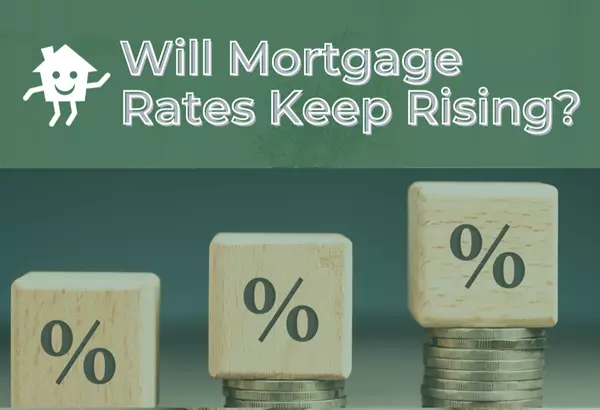

What Missteps to Avoid When Wanting To Get Approved When Buying A Home
What Missteps to Avoid When Wanting To Get Approved for a Mortgage Buying a home is an exciting experience, but there are some important things to remember when applying for your mortgage. To make sure the process goes as smoothly as possible, it’s important to avoid doing certain activities that could disqualify you from getting approved or result in a higher interest rate. This blog post discusses seven common mistakes people make after applying for a mortgage and how they can be avoided. 1. Sourcing large sums of cash Before making large cash deposits into your account, you'll need to check in with your loan officer and discuss the best way to document the transaction. This is because lenders need to source the money they are loaning; however, since cash isn't easily traceable, it's vital to document all transactions accurately. By discussing this with your loan officer in advance, you can ensure that all lending regulations are met and provide a smoother process. 2. Making any large purchases It can be tempting to buy an expensive new appliance or furniture set when you’re preparing to move into a new home. But when applying for a mortgage, it’s critical to avoid making any large purchases—not just home-related ones. Lenders look at your debt-to-income ratio when assessing loan eligibility; anything that increases your debt could disqualify you from a loan. Keeping purchases to the strict essentials while awaiting loan approval is one way to ensure success in obtaining the mortgage even if it feels like a necessary purchase, wait until after you’ve gotten approved for the loan before diving into larger purchases. 3. Cosigning loans for anyone When considering cosigning a loan, they should be aware that it’s not just a matter of signing the paperwork and being done with it. The contract carries a significant responsibility to ensure that the lender receives what was promised. Getting approved for financing could depend on careful analysis of the debt already committed to, including cosigned loans. Although a cosigner may not be actively making payments for the loan, their obligation remains—and should be considered when considering further financial commitments. 4. Switching bank accounts When you are trying to purchase something major, lenders need to be sure they can trust your ability to pay back a loan in full. To do this, they have to source and track all of your assets – and the task can be quite complicated if your accounts are inconsistent. That's why it is important to speak with your loan officer before transferring money. This way, you can ensure that your lender has a clear understanding and record of where every dollar is being allocated, giving you the best chance at obtaining the loan you need. 5. Applying for new credit Credit scores are an important factor to consider when making any financial decision. From purchasing a car to obtaining a new credit card, having your credit report run by organizations across multiple channels can seriously impact your FICO® score. Lower credit scores will not only determine the interest rate you are offered but could potentially impact your eligibility for approval. These factors make understanding your financial health critical in helping you make informed decisions regarding borrowing and ultimately achieving long-term economic stability. 6. Closing any accounts Although many buyers incorrectly believe that decreasing available credit makes them less risky and more likely to be approved, the opposite is true. Your payment history is just one part of what determines your credit score. Two other key components are the length and depth of your credit history and the total amount of credit in use compared to available credit. Usually, when someone closes a credit account, it has a negative effect on both of those factors, resulting in an overall lower score. Therefore, reducing your available credit can make you appear riskier to lenders and lower the possibility of being approved. 7. Not discussing changes with the lender Please be sure to stay open with your lender when pursuing a home loan. Any income, assets, or credit changes should be openly discussed before making decisions regarding the loan application. It’s also important to keep your lender updated on any recent changes in your employment status that could affect your eligibility and ability to repay the loan. These conversations are often difficult, but they'll help lockdown the best rate available and provide security and peace of mind when signing those all-important documents. Being fully transparent is always better than hiding information - it can save time, money, and stress down the line if unexpected issues arise. To sum up, the process of obtaining a loan can be complicated and stressful. To ensure your best chance at success, following the above seven tips will be beneficial to getting the most favorable terms for getting a mortgage. If you would like assistance navigating the world of the home-buying process in the Chicagoland area, Deborah Benn with Real Estate Hub Spot is ready to assist you.
Read More

What to know when searching for a home - Tips from Deborah Benn with Real Estate Hub Spot | Berkshire Hathaway Starck
Looking for a new home is tough, but we can find your perfect match with the right resources! Hello, my name is Deborah Benn, one of the partners at RealEstateHubSpot.com, and I'll be your tour guide on the steps when buying a new home. Yay, it's time to start hunting for your home and go shopping to find it. Our team's website, RealEstateHubSpot.com, is an up-to-date website to search for Chicagoland homes online; you can't get more up-to-date than ours with the timeliness of new listings hitting the market. Based on your needs, we will create searches, where you will receive new listings in your email… And you will have access to search the properties for sale yourself. Knowing you will only see the properties available for sale is important. Did you know that other websites include property listings under contract with another buyer that is unavailable for you to buy? You're probably thinking, yeah, what's the big deal? These websites are trying to get your contact information to solicit their services. The more homes on their website, whether available or not, provides the higher probability that a consumer will register with their contact information. This causes much confusion to consumers, which is why we avoid it on our website. One of the common frustrations is when buyers use these third-party websites, get excited about a home, ask their Realtor about it, and find out it's under contract with another buyer. It's frustrating and a waste of time. It is also good to know that when using other popular third-party websites, you never know the type of agent you'll be communicating with. Just like in every industry, there's a spectrum with the quality of agents; some "faking it till they make it," some that sell a lot of real estate where they treat their clients like a "number," you know put their needs before the clients, and the list goes on. On RealEstateHubSpot.com, with our exceptionally high standards for our clients and team, you'll be comfortable knowing precisely who you are communicating with. Let me share one story, one that you'll appreciate. Recently, we worked with buyers who had minimal availability for showings. At that time in the market, buyers needed to view the home rather quickly, as the houses were flying off the shelves. To service these clients' unique needs, we had to tap into the variety of real estate brokers with RealEstateHubSpot.com to show them homes they were interested in. These buyers greatly appreciated that each partner, individuals they had never met before, truly cared about finding the right house; all willing to crawl through "crawl spaces" to help them dissect the property and speak about the pros & cons of it. They expressed they never felt rushed and appreciated that they never thought we were leading them in a direction just to get them under contract. It's incredible to work with colleagues that love each other clients like it's their family. We have story after story on how our clients feel comfortable with our high standards when it comes to our clients. Once you find homes that pique your curiosity, our team will schedule showings to view them. We have some tips for showings that are good to know. For showings, it's important to know that sellers permit us to view their property during a window of time. Entering their home outside that window of time is trespassing. Because of this, it's important to be timely for the showings so that we can take your time to view every aspect of the property. If we're going on a tour where we're scheduled to see multiple homes, it's even more important to be on time. Also, wear shoes that can be easily removed, remember to wear socks, or use the shoe covers provided during showings. We’re honored and excited to be working with you! Now, let’s find you a new home.
Read More

What are the experts saying about home prices?
What are the experts saying about home prices? It seems like someone is talking about the possible housing market crash everywhere you turn. Will home prices go up or down? When will it happen? Is now a good time to buy or sell? These are all valid questions - but luckily, we have the experts to help us make sense of it all. So what are the experts saying about home prices? So let's take a look at this quote from Redfin. It says, "For those bearish folks eagerly awaiting the home price crash, you'll have to keep waiting. As much as demand is pulling back, supply is as well. And that's reducing downward pressure on prices in the short run." So what does this mean? This means houses are staying on the market longer. We're not seeing an influx of new listings. It is still a seller's market. And what we know is that prices are driven by supply and demand. And this is continuing to put upward pressure on home prices. I know a lot of us are visual people. So, let's look at this graph for the Chicagoland area, which shows the Median Sales Price Appreciation, the rate of appreciation for the past four years. You'll see that Chicagoland is still experiencing appreciation, but the rate of appreciation is slowing down. Like markets across the nation, the Chicagoland real estate market is experiencing a historically low inventory of homes for sale. We haven't seen inventory levels this low since 2013. News Listings represent supply, and the Contracts Written represent demand. As in the previously discussed quote, supply and demand are pulling back, reducing the downward pressure on sales prices. Let's discuss what experts say about the following year's home price forecast. So we like to look across the board at several different experts and average them all out so you can see the whole picture here. You can see here that some experts are projecting a little bit of appreciation next year. That's what you see in those blue bars, anywhere from 0.7% to 2.6% appreciation. We have other experts that are projecting slight depreciation. So it's across the board; a little bit up, a little bit down, depending on how experts view it. When we average these across the year, there is roughly neutral, flat home price appreciation for 2023. But it's certainly something we'll keep our eyes on as we go forward. Now, I would like to share another perspective on this with you. Because big banks are projecting more depreciation in 2023, Goldman Sachs, Wells Fargo, Moody's, and Morgan Stanley, you can see that they're shifting more towards, You know what? We may see some slight depreciation next year. And it's a little bit different because some big banks follow more publicly traded builders versus some organizations that follow more existing homes. And so big banks are calling for more depreciation based on that new build type of environment, versus existing home organizations saying slight appreciation. But what's most important and where they all tend to agree, and this is data from Wells Fargo that positions this well, is that 2023 may be a little bit of depreciation. So it could be rocky next year. But as we come into 2024 and beyond, we're turning to more normal home price appreciation levels. And as we continue to look forward, as we look at things like the Home Price Expectations Survey saying more normal appreciation in the years ahead, it all depends on supply and demand. And inventory is still historically low. So we will continue to see that in the years ahead. But 2023, a little bit of depreciation, a little more neutral. So that's the bottom line that we see here. And this quote from Freddie Mac says that well. It says, "While there may be a little statistical difference between a small positive number and a small negative number – talking about some appreciation, some depreciation – there are often huge differences in how they impact behavior." What we also know, especially as we look back on time, is that we had a great financial crisis. There were five years of continued depreciation. No one is calling for that long extended period of depreciation right now. So it will be a little rocky next year, potentially returning to more normal levels of appreciation. So we're talking about something other than this prolonged financial crisis ahead of us. We're talking about some up and some down next year and then back to more normal levels as we look nationally at that perspective, moving into a much more stable environment. So, what does this mean? Although 2023 will be a bumpy year, the experts predict the market will be more normalized in 2024. So, if you're a homeowner in Chicagoland wanting to sell and get ahead of the competition, now is the time to start reaching out to us. We have helped homeowners sell their homes when another agent couldn't, and we've also saved our client's thousands of dollars by working with us on getting their homes ready for the market. We know what it takes to succeed in the Chicagoland real estate market, and we can help you too! Suppose you're a buyer, especially those who put their homebuying dreams on the shelves because of the highly competitive market and plan to stay in the home for several years. In that case, this may be the time for you to revisit buying again. If you haven't already, we encourage you to watch the video on mortgage rates and what happened to rates during the last six recessions. Also, there are 5-year arm products, negotiate with the sellers to contribute money towards a rate buydown, and more. Then, when rates decline, you're not married to them so that you can refinance. As always, if you have any questions regarding real estate or are ready to start working with us, please reach out to us on our website.
Read More

Will Mortgage Rates keep rising?
Will Mortgage Rates keep rising? Now, a lot of people are asking the question of whether or not the rates are going to continue to go up. And honestly, no one really knows for sure. But we can take a look at some data and make an educated guess. So stay tuned, and I'll share with you what some of the experts are saying. Hi, my name is Deborah Benn, one of the partners with Real Estate HubSpot.com, and in this video, I'm going to talk about mortgage rates. So let’s start with a graph. This is the Freddie Mac 30-year fixed rate from January of 2022, so the very beginning of the year, through where we are today. And, of course, this is a look back. So this is released at the time of this recording, right at the beginning of November. And what we can see from this graph is how rates have climbed drastically this year. The incline is steep at 7% over the past couple of weeks which is a contributing factor to we see a cool down in sales which is causing people to pause their plans and say, “Hey, I'm not sure this is the best time to buy right now." We’re seeing people who have been priced out of the housing market in the Chicagoland area. Mortgage rates have actually – if you look at this graph- more than doubled this year. And the pain that people are feeling is because they’re rising so fast. It’s not necessarily just about that 7% number that we’re starting to see them tick around. It’s about the rapid rise. And I think this quote from Freddie Mac really says it well. It says, “U.S. 30-year fixed mortgage rates have increased 3.83 percentage points since the end of last year. That’s the biggest year-to-date increase in over 50 years.” So that’s certainly making people press pause. It’s making them question their plans. You may be curious how this is impacting the Chicagoland market. In this graph, you’ll see that the number of contracts written to purchase a property this year is around the 2019 level. Now, many buyers in 2021 & the first six months of 2022 wished the market slowed down to be less competitive. If this was you, and you put your home-buying dreams aside, pay attention closely, as this could be your market. Back to mortgage rates. The mortgage rate increase is all about inflation. So take a look at this quote from George Ratiu from realtor.com. It says, “With inflation still running at a 40-year high and the Fed expecting a few more rate increases to combat it, mortgage rates will experience upward pressure through the end of 2022.” So why is that? Because the Federal Reserve is making moves to raise the federal funds rate. They’re trying to lower inflation. They’re trying to slow down the economy. And in doing so, they don’t call mortgage rates, but mortgage rates tend to respond. And that’s exactly what’s happening. It’s what we’ve been saying for the bulk of the year now is that while inflation is high, mortgage rates are going to remain high. So we’re seeing that expected upward pressure through the end of the year. Now, there is good news, and I think Mark Fleming from First American says it well, “While mortgage rates are expected to continue to drift higher over the coming months, much of the rapid increase in rates is likely behind us.” So we’re not talking about mortgage rates doubling again. Mortgage rates are feeling that pressure. The Fed is making active moves to lower inflation. Mortgage rates respond. We’re still seeing high mortgage rates. But we’re not expected to see this exponential increase as we continue to go forward. So as we start to see the Fed making moves to lower inflation, to really get this under control, and to see what’s happening in the economy around us, the question starts to come into play, what about a recession? You know that the next thing on the radar is, what happens? Is there a recession around the corner? And this data from the Wall Street Journal is beneficial. And it is a survey where The Wall Street Journal asked economists about the chances of a recession happening in the next 12 months. And you can see, in January of 2022, about 18% of economists said, you know what, I think we’re going to see a recession over the next 12 months. Well, as inflation has stayed high, we’ve seen economic pressures in the world around us. We’ve seen the housing market change. You know, that percentage of economists who are expecting a recession over the next 12 months has continued to increase. And the latest data released in October shows that 63% of economists feel that there’s going to be a recession sometime over the next 12 months. And this is reflective of where we’ve seen the economy go over the past year. And it starts to spark the question, what does that mean for the housing market? And so, as we look at the housing market, there’s a lot we can learn from history. But let’s see what history tells us when the country experienced a recession, and did it mean falling prices? Here is data from CoreLogic. Home prices increased in four out of the last six recessions in this country. Now, we all remember the housing crash in 2008, and I think that’s fresh in our minds and people are fearful of that. But what we have to remember is we have a very different landscape right now when it comes to inventory, when it comes to lending standards and equity. All of these factors are driving the housing market in a different direction. This graph does not mean that we won’t have falling prices. But it does mean that it doesn’t happen every time. So when we think about what happens in the housing market if a recession is in play, we have to put this context together. And one thing we can also learn about what history tells us is that a recession more likely means falling mortgage rates. Because in those same six recessions, mortgage rates have dropped each time this country has seen a recession. I hope these visuals help you understand what does history tell us? I know there is a lot of fear and a lot of uncertainty when experts start saying recession in the housing market. You know, we’ll have to see how this plays out. We’re going to have to continue to watch and see what happens with inflation and what happens with mortgage rates. You know, at RealEstateHubSpot.com, we’re the certain path during uncertain times. During the next Real Estate Hub Spot’s Thursday Talk, I will talk more about home prices, so keep an eye out for that. Several of our clients have utilized a competitive 5-year arm product and had the seller do a buy-down. There are options if you really want to get into a new house. As always, if you have any questions or want to strategize your real estate goals, we’re here to help. We encourage you to connect with us on our website, Real Estate Hub Spot.com.
Read More
Categories
Recent Posts







